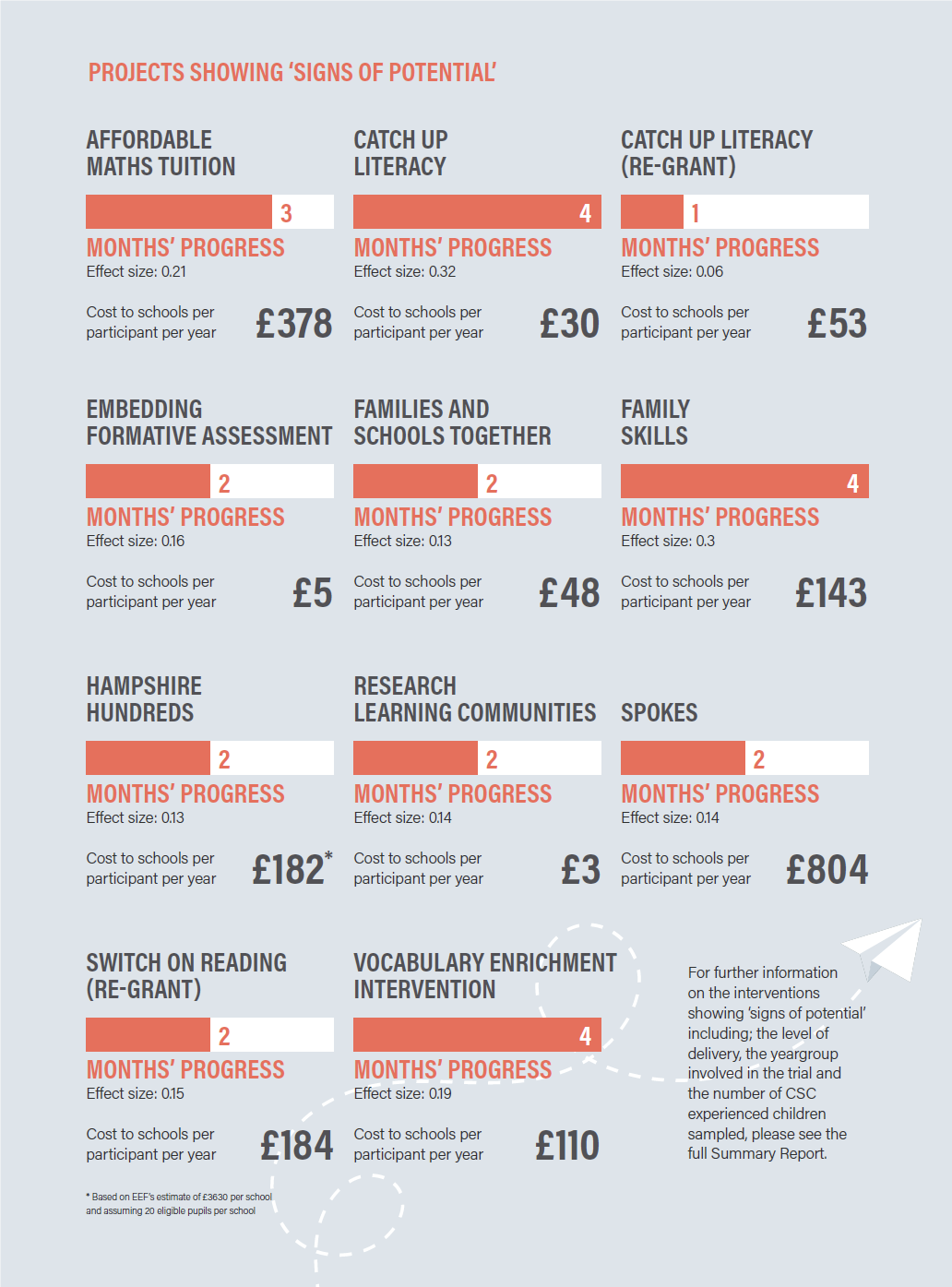Report published January 2020
Summary
We know that children and young people who have had a social worker have, on average, lower attainment than their peers. However, we do not have a good sense of what works to improve educational outcomes for this group.
This project re-analyses data from the National Pupil Database and 63 randomised controlled trials (RCTs), funded by the Education Endowment Foundation (EEF), to look at the impacts of educational interventions on the attainment of young people who have had a social worker.
The report identifies ten projects that we believe show ‘Signs of Potential’ – interventions that appear to have larger positive impacts for young people who have had a social worker than for their peers. Interventions that target parents and carers appear from our analysis to be particularly encouraging.
Objectives
The aim of this project is to explore whether the interventions evaluated by the EEF have an effect for children who have had a social worker, and whether these effects are different to those of their peers.
How we went about it
First we requested to access EEF’s data archive (managed by FFT) that contained data from a number of their trials, as well as data from the Department for Education’s National Pupil Database (NPD). The EEF’s data archive contained data from each randomised controlled trial, while the NPD contained details about whether or not the young people in the trials had had a social worker previously, as well as some additional covariates we wanted to include in our models.
Next we cleaned and combined these datasets, and attempted to replicate the EEF’s original findings.
We then conducted subgroup analysis, to determine the impact on children who had had a social worker, and how this compared to their peers.
Key findings
Impacts on young people who have had a social worker are comparable in size to impacts on all children on average.
However, different interventions are effective, suggesting that the needs of young people who have had a social worker in education may be different to their peers.
Small sample sizes for the sub-group we look at (namely, young people who have had a social worker) mean that findings cannot be conclusive at this stage.
We find ten projects that we believe show ‘Signs of Potential’ – interventions that appear to have larger positive impacts for young people who have had a social worker than for their peers. These are shown in the Discussion
Implications
Future research should prioritise robustly testing these interventions at scale.
Interventions that target parents and carers appear from our analysis to be particularly encouraging. We believe there is space for future research focusing on developing and testing interventions designed to support young people with social care experience.
What next
As outlined in our initial trial protocol, we are going to conduct a meta-analysis, to explore the aggregate affect across trials, as well as determine whether effects are different by type of intervention.

